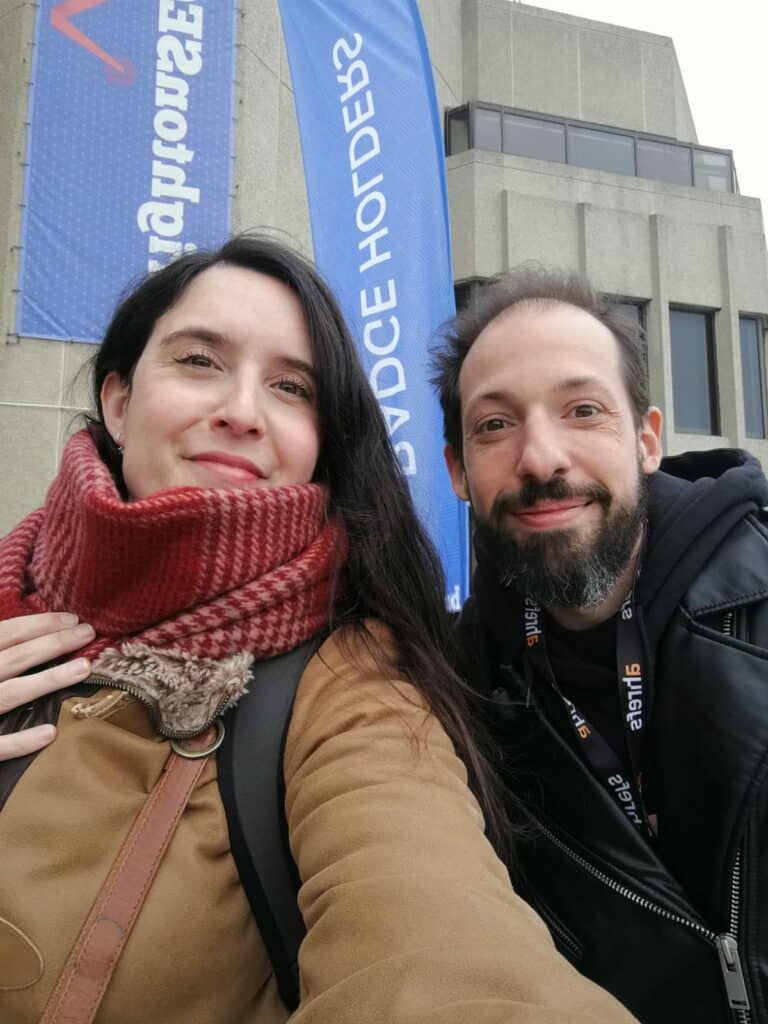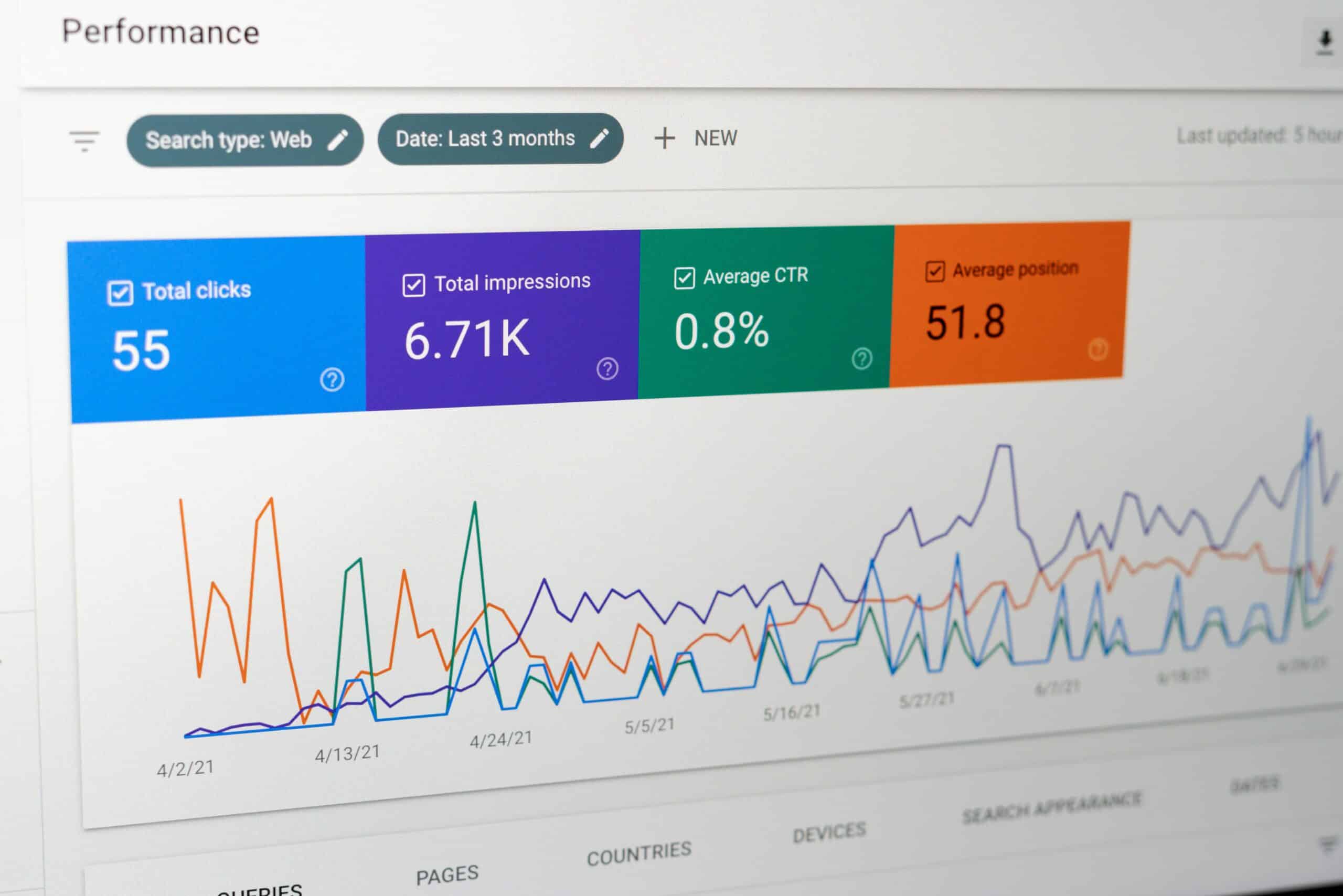I hadn’t been to Brighton SEO since 2016, when it was still being held at the Brighton Dome. Fast forward to 2022 and I was back! Different venue (to me), lots of speakers and the awesome team at MOGmedia in tow, it was time to check how much the SEO scene has changed in the last six years.
Read on and you’ll find the main things I learned, the talks and speakers I enjoyed most and, of course, my thoughts on the whole thing. I’ll keep things short, because we could talk about this forever and my main aim is to just distil the absolute musts you need to consider when thinking about Content Marketing.
Content Marketing
These are my highlights of all the content marketing talks I saw at Brighton SEO April 2022. Well, just the first part of them, because I saw lots. But you can get started here. There’s a lot to unpack.
‘Why scaling (great) content is so bloody hard’ by Joshua Hardwick
Nothing new under the sun, but yes, while scaling content can be easy, scaling great content is hard because maintaining editorial standards is challenging, especially if you don’t want to compromise the quality that, in the end, will get you the ranks you want.
Basically, if you want to scale great content, this is what you must do:
- Systemize as much as you can: basically, create systems for every single task you must do, standardise processes and streamline them as much as you can. You can use basically any app with a Kanban board (call it Asana, Notion, etc.). Assign tasks to each person responsible for them (writers, editors, etc). And always have SOPs – also known Standard Operating Procedures if you don’t like acronyms. They are key to document every single step in each of the processes and systems that involve your work. And they are fantastic when you’re training teams.
- Introduce Peer Reviewers: pair people so they can review each other’s content. That way, nothing goes live without another pair of eyes looking at it.
- Hire great people who are not only fantastic writers, but who can also work autonomously and who are fast learners. This is where having SOPs for everything will come in handy.
My #BrightonSEO slides in case anyone wants them 🙂 – https://t.co/dLDVIKHPhB
“How to go viral using digital PR” by Alex Hickson
In his talk, Alex Hickson talked about how he got his business to go viral but crafting a great PR strategy. To keep it short, his business makes unconventional candles and is fun and ground-breaking. Here are some tips that can help any product/campaign go viral (although that is never guaranteed):
- Identify a trend in the niche you want to target and tie your product to it: it’s obviously more complex than that, but you get the gist.
- Validate if the trend you’re interested in is relevant enough, has a big enough audience, has a long-ish shelf life.
- Identify your audience à Target where your audience consume media.
- Create a fantastic pitch to sell your story like a boss à Pay a lot of attention to subject lines, openers, primary and secondary hooks, quotes and closing notes.
Slides from my @brightonseo talk should be available here ?https://t.co/xD9La2G8Ev
— Alex Hickson (@alexhicksonpr) April 7, 2022
“The Content and Buyer show: Let’s Map” by Rejoice Ojiaku
Have you ever thought about mapping your content? Rejoice Ojiaku gave plenty of great reasons why everybody who works in content marketing should map. In essence, when you map content, you can tailor it to your audience, and you can also be a bit more creative with your data whilst putting the customer at the centre.
These are the six benefits of content mapping:
- Better understanding
- Know everything in your content library
- Relevant content
- Guides customers along buyer’s journey
- Can double as a keyword map
- Identify holes in Content Strategy
“E-A-T: Have we been looking at it backwards?” by Edward Ziubrzynski
E-A-T = Expertise – Authority – Trustworthiness
Ziubrzynski explained how low-quality pages can have a negative impact on any user or reader, especially in the science/medicine sector. For that reason, E-A-T is something that needs to be embedded in any Content Strategy and it involves:
- Assigning experts to your content, don’t just keep them in a meet the team section.
- Frequently updating your website content
- Implementing an on-site review strategy – Google trusts users more than they trust you
- Making sure your perception across the wider web is positive à basically, that your messaging and content is aligned inside and outside your web, and that user reviews are do not vary wildly from one place to another.
- Disavowing spam links that could be interpreted as you trying to game the SEO system
“How to incorporate machine learning in your internal linking audit” by Lazarina Stoy
Lazarina Stoy was an absolute joy to see and hear at Brighton SEO in April 2022. Her talk about machine learning applied to internal linking audits was not only brilliant, but also incredibly practical and creative. The goal is to improve internal link building in a streamlined and sustainable way.
Given that according to her presentation 82% of internal link opportunities are missed, any good internal linking strategy should aim to:
- Establish authority
- Boost money making pages
- Enrich search intent
- Build subtopic relationships
- And help with things like better structure, improved indexing, navigation, keywords ranked, traffic, CTR, use intent, etc.
To go beyond just a simple crawl, machine learning can help with crawling, identifying entities and assessing entity relationships. Stoy’s answer to this is introducing a no-code LDA topic modelling for SEO Internal Link Audits. It’s too complex to summarise here. But Lazarina has already shared it as a video on her YouTube channel. And you should check this one out.
Wrapping up on my #brightonSEO experience and this photo is just stuck in my mind
— Lazarina Stoy (@lazarinastoy) April 10, 2022
Thank you all 600+, who came and filled the room on Thursday ?
Thanks to everyone, who helped shape my experience into an overall positive one, special mention to @gemmafontane + @techseowomen ? pic.twitter.com/XtjiIsfkZV
“How to do comprehensive research for your Topic Cluster” by Chima Mmeje
You surely already know this, but a “Topic Cluster” is a group of content that revolves around a central topic and uses the pillar cluster approach to link between related content pieces in that same cluster. It’s a wonderful way to rank for content where the focus is on topics, rather than just keywords. Plus, it helps you become an authority in a subject.
Chima Mmeje’s talk was super comprehensive and offered plenty of hands-on information and tips that anyone could and should apply when working on Topic Clusters. And these are some of the main takeaways:
- Choose a topic you want to build authority on
- Figure out who’s your audience
- Conduct a content audit
- Research what your audience wants and needs
- Do your keyword research
- Think about how you can match your topics with each of the stages of the user journey
- Create content for all the problems your product solves and prioritize high purchase intent keywords, then build into the middle and leave the pillar page till the end.
There’s a lot more to unpack from Brighton SEO April 2022, and I will tackle that on the next blog. But, for now, what were your favourite bits of the go-to conference for anything SEO?




